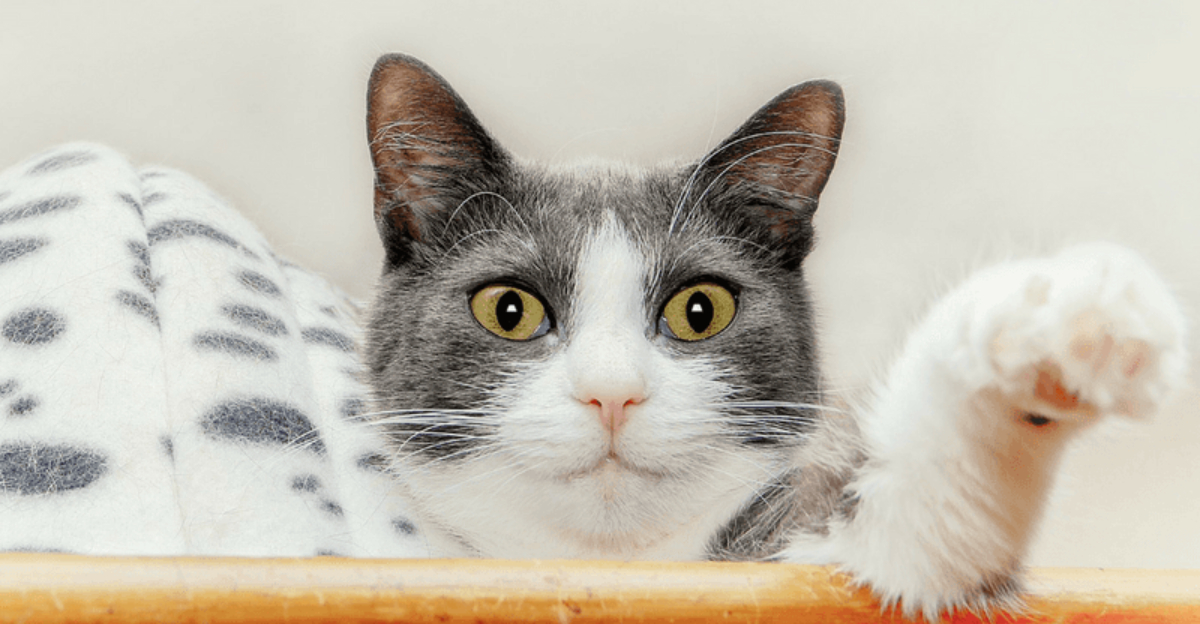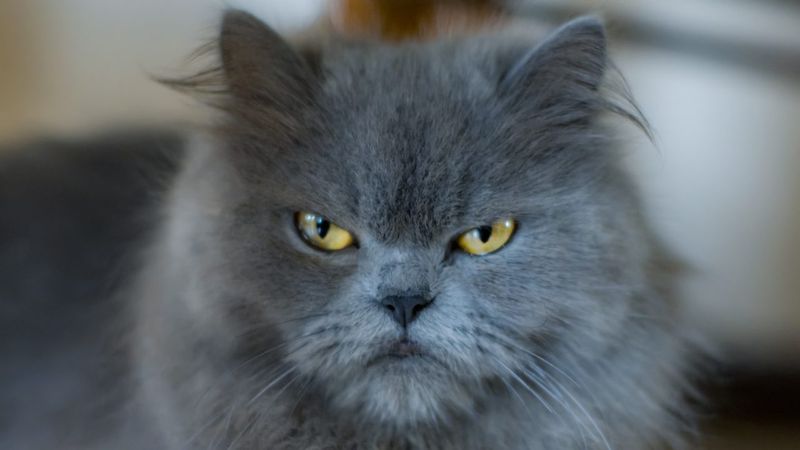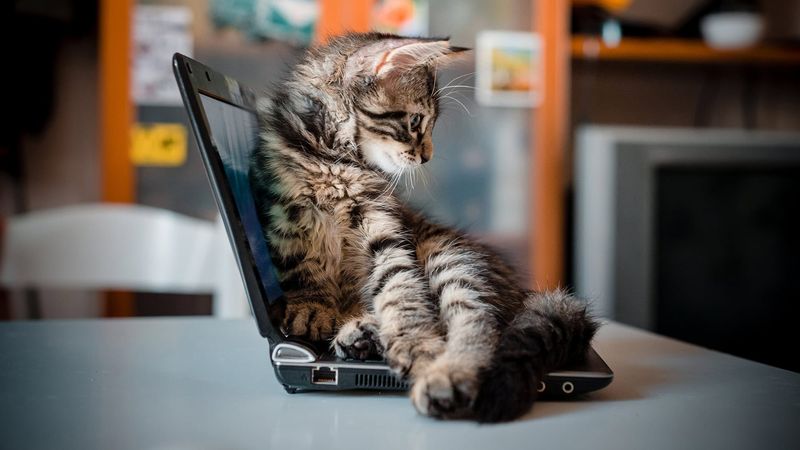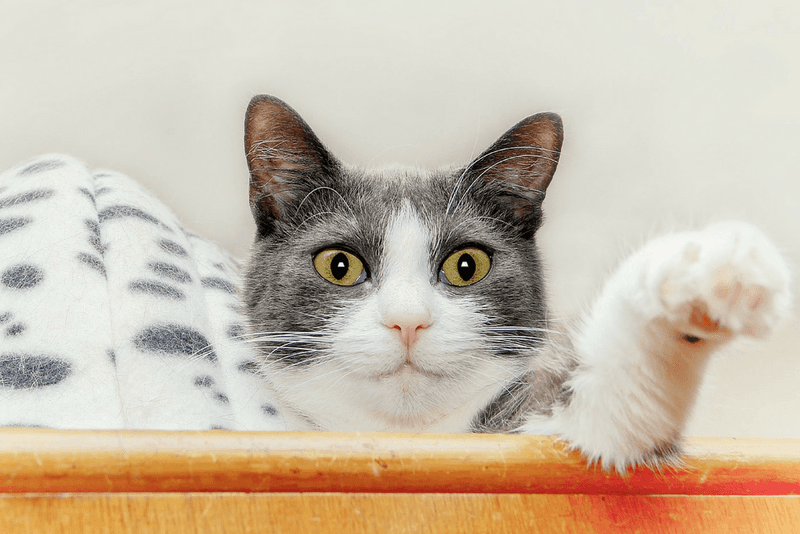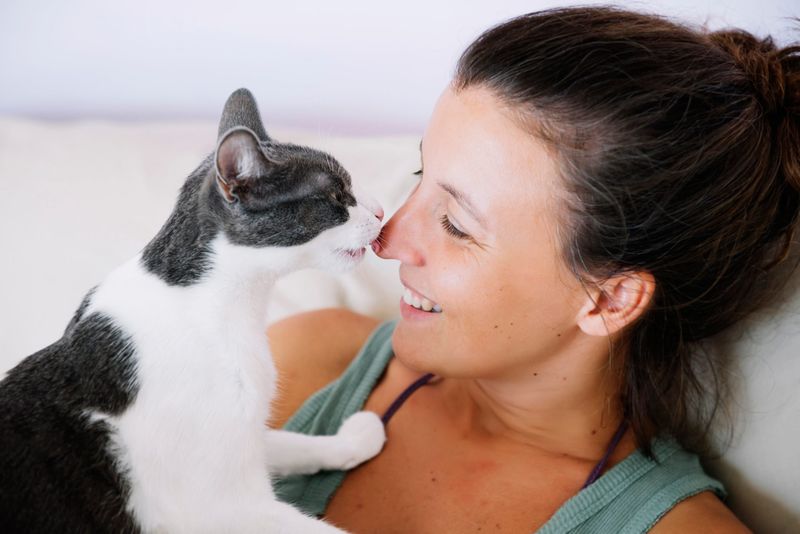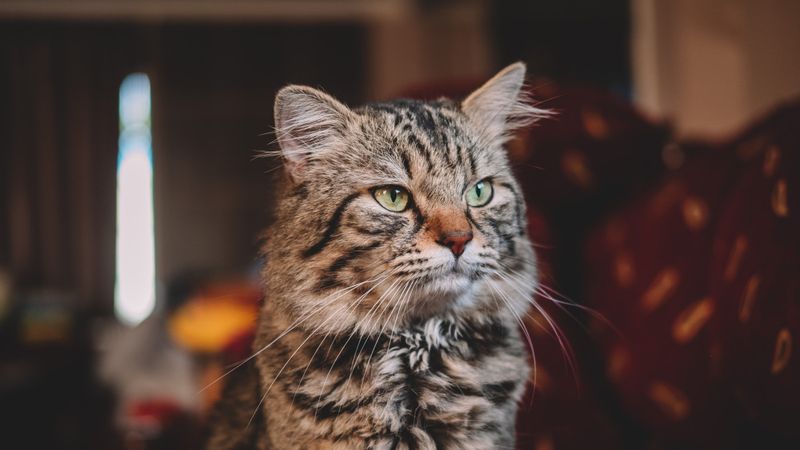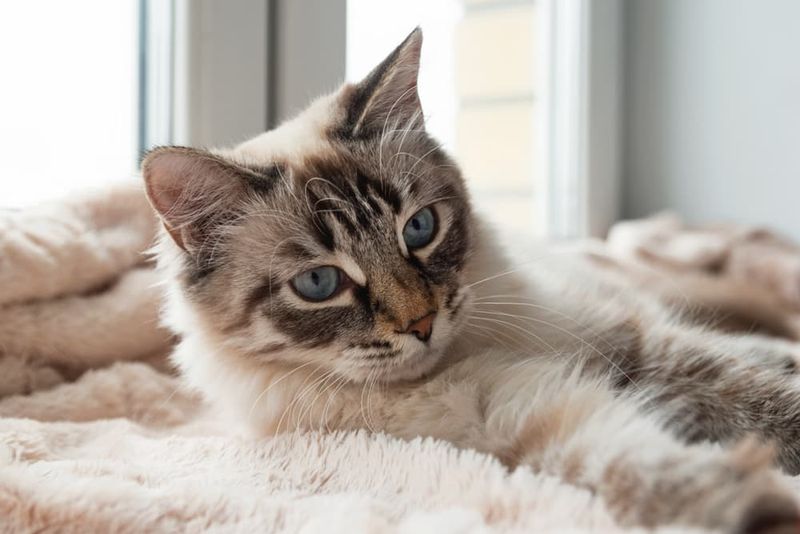📖 Table of Content:
Cats often carry a reputation for being cool and self-contained, but their emotions run deeper than they let on. Among those emotions is jealousy, a response triggered when something—or someone—disrupts their routine or perceived status. These shifts can lead to behaviors that are easy to overlook or misinterpret.
Whether it’s a new pet, a baby, or even an object taking up too much of your attention, cats tend to notice. Their reactions might not be loud or obvious, but they are deliberate. Subtle changes in behavior often serve as clues to their discontent.
Instead of direct confrontation, cats express jealousy through quiet defiance and territorial gestures. These actions are their way of reclaiming attention or reestablishing control. Recognizing these signs can help prevent long-term tension and restore harmony in the home.
1. Strategic Litterbox Mishaps
Suddenly forgetting where the litterbox is located? Your cat hasn’t developed amnesia. When cats feel displaced by a new addition to the family, they might start leaving “presents” in places you can’t miss—like your new boyfriend’s shoes or next to the baby’s play mat.
This territorial marking is your cat’s way of saying, “Remember me? The one who was here first?” The timing of these accidents is rarely coincidental. They often occur right after you’ve given attention to the object of their jealousy.
Cats are smart enough to know exactly what bothers you most, and they’re not above using their bathroom habits as emotional leverage.
2. The Laptop Occupation Technique
Working from home? Your cat has other plans. The moment you open your laptop, your feline strategically positions itself directly on the keyboard, transforming your important email into a string of gibberish.
This classic move isn’t just about seeking warmth. Your cat has noticed how much attention you give that glowing rectangle and has decided to insert themselves between you and the competition. The more important your work, the more likely they’ll choose that exact moment to demand attention.
Many cat owners notice this behavior intensifies when they’ve been particularly busy or distracted.
3. Knocking Things Off Shelves While Maintaining Eye Contact
There’s nothing quite like the sound of your favorite mug smashing on the floor while your cat stares unblinkingly into your soul. This deliberate act of destruction isn’t random mischief—it’s a calculated power move.
Cats specifically target items they’ve seen you handling or paying attention to. That framed photo of your new partner? The souvenir from your vacation without them? Fair game for their batting paws.
The direct eye contact during these episodes is crucial—it’s your cat’s way of saying, “This is what happens when you neglect me.” Some cats even seem to enjoy watching your reaction more than the act itself.
4. The Silent Treatment and Cold Shoulder
Cats are masters of the cold shoulder. When jealous, they might retreat to a corner, back turned dramatically toward you, occasionally glancing over their shoulder to ensure you notice their displeasure. This feline silent treatment can last hours or even days.
Unlike dogs, who might whine for attention, cats employ psychological warfare. They’ll ignore your calls, reject treats, and act as if you’ve committed an unforgivable betrayal. The timing is telling—often following interactions with the “competition.”
Many cat owners report feeling genuinely guilty during these episodes, which is exactly what your manipulative furball is counting on.
5. Excessive Grooming of Their Humans
Your cat’s sudden obsession with licking your hair or face might seem affectionate, but look closer at the timing. When cats sense competition, they often increase marking behaviors—including grooming you excessively to cover you with their scent.
This behavior typically intensifies after you’ve interacted with another animal or even a baby. The rough tongue bath isn’t just about hygiene—it’s your cat reclaiming what they consider theirs. Some cats will even position themselves between you and the perceived rival during these grooming sessions.
The message is clear: “This human belongs to me, and I’m making sure everyone knows it.”
6. Dramatic Meowing Performances at 3 AM
Those middle-of-the-night vocal concerts aren’t random. When cats feel displaced during waking hours, they’ll often reclaim your attention when you’re most vulnerable—half-asleep at 3 AM. The plaintive meows escalate in volume and desperation until you’re fully awake.
Cats are clever enough to recognize that nighttime disruptions get immediate responses. The timing often correlates with periods when they’ve received less daytime attention than usual.
Some particularly vindictive felines will specifically target nights following days when you’ve given extra attention to their “rivals.” Their internal alarm clock is surprisingly accurate when revenge is on the menu.
7. Strategic Hairball Placement
Finding hairballs in your home is unpleasant enough, but jealous cats elevate this to an art form. They’ll strategically deposit these slimy offerings in places associated with their perceived rival—your guest’s suitcase, your partner’s pillow, or near the new puppy’s bed.
While hairballs are natural, their placement rarely is. Cats could choose any location, yet somehow these disgusting presents appear precisely where they’ll cause maximum disruption to whatever is threatening their position.
Many pet owners report finding hairballs on prized possessions or items recently given attention. The timing and location of these gross gifts are your cat’s passive-aggressive reminder of their feelings.
